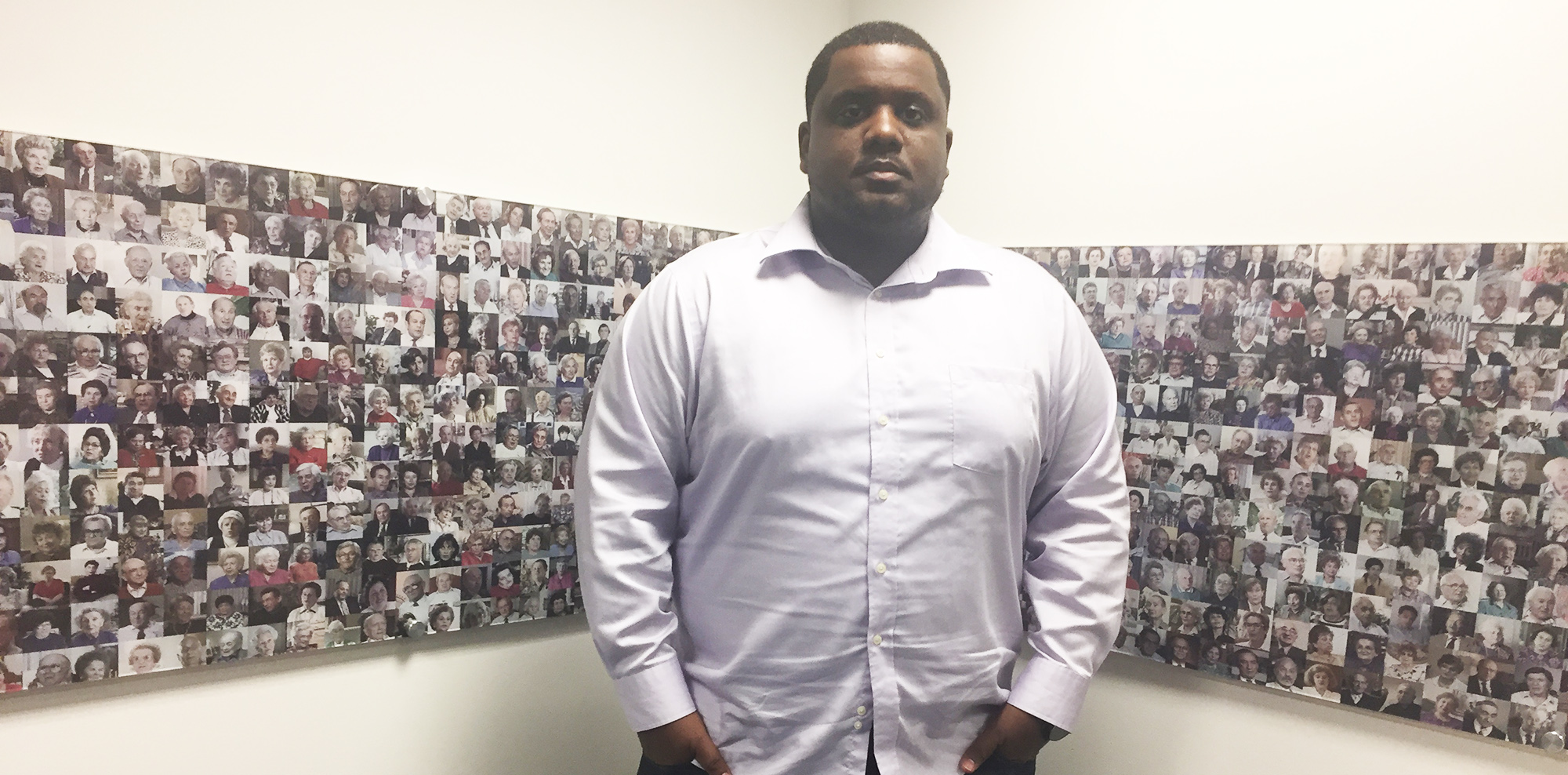Texas A&M Teaching Fellow Tommy Curry Researches Sexual Violence in Visual History Archive

Though the topic of sexual violence against women during genocide is notoriously under-researched, sexual violence against men is even more so. And that’s what USC Shoah Foundation’s 2016-2017 A.I. and Manet Schepps Foundation Teaching Fellow at Texas A&M Tommy Curry hopes to change.
Curry, a professor in Texas A&M’s philosophy and Africana studies departments, was awarded this year’s Texas A&M fellowship, which invites the selected applicant to spend one week in residence at USC Shoah Foundation conducting research in the Visual History Archive in order to incorporate testimony into their teaching and research.
Curry’s research interests focus on Africana philosophy and critical race theory, and specifically he studies the racialization of black men and boys and their oppression as victims of rape, sexual abuse and sexual traumas. A history buff and fan of archives, Curry thought the Visual History Archive could provide sources that would help him expand and explain some of the theories he’s working on.
When he arrived at USC Shoah Foundation to begin his fellowship, Curry searched for and quickly found dozens of testimonies that discuss sexual violence committed against Jewish boys in the concentration camps of World War II. Curious about what other scholars have written on the topic, he was surprised to find that there is no authoritative source on the rapes of Jewish boys by German soldiers or fellow prisoners.
“That mirrors the lack of representation we see in the scholarship about black men and boys under slavery or Jim Crow. There’s not a lot of discussion that considers oppressed men and racially subordinated men being victims of sexual violence,” Curry said. “There are no real theories about how racialized men or oppressed men see themselves as being vulnerable or speak about their vulnerabilities, and the literature absolutely does not speak about sexual violence those types of males experience.”
The testimonies that Curry found in the Visual History Archive of male Holocaust and Armenian Genocide survivors who describe experiencing or witnessing sexual abuse are sobering. Survivors describe boys exchanging sex with fellow male prisoners or their German captors for food in the camps, or narrowly escaping such situations themselves. Interviewees rarely describe personal experiences in detail, preferring to allude to it or simply say it was “shameful.”
To Curry, these stories demonstrate that men, not just women, experience hyper-sexualization and sexual vulnerability within oppressive racial genocidal regimes. Men are usually thought to be only targeted for death, but the testimonies show that sexual violence plays a substantial role in their oppression as well.
“They’re heartbreaking stories. It’s tragic,” Curry said. “But at the same time, they’re stories that I think deserve to be heard, that need to be theoretically as well as historically excavated, so we have accounts that give a broader scope of genocidal violence [against men] beyond simply the extermination of men and boys.”
In addition to writing his own scholarly article or book chapter on what he’s found in the VHA, Curry will incorporate testimony clips into a graduate seminar he teaches at Texas A&M about African American male death and dying. He hopes the testimonies of male victims of sexual abuse inspire empathy in his students and help them begin to understand the unique challenges faced by black men and boys who are raped.
Testimonies in the Visual History Archive made his research feel more meaningful, Curry said. He often found himself watching a testimony for 20 or 30 extra minutes because he was so engrossed in the survivor’s story. It’s that kind of compassion for the victims that he hopes will inspire others in the field to examine these issues.
“Part of doing work on male victims of sexual violence is to see that humanity and that vulnerability,” he said. “To do responsible scholarship about the black male experience, the Armenian male experience, the Jewish male experience in these kinds of conditions of slavery and genocide, you have to have a fundamental empathetic connection to that male vulnerability that’s often denied.”
Like this article? Get our e-newsletter.
Be the first to learn about new articles and personal stories like the one you've just read.